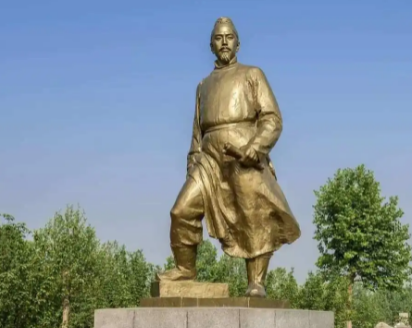In the history of China, the abdication of monarchs is often accompanied by intrigues within the royal court, yet the abdication of Ganlong is a story filled with wisdom and strategy. Ganlong, a fictional character whose name implies "the sweet dragon", was a wise and legendary king in ancient legends. This article will explore the reasons for Ganlong's abdication and how he continued to influence state affairs after his abdication.

Firstly, regarding the reasons for Ganlong's abdication, there are multiple versions in the legends. One says that Ganlong, in pursuit of the country's long-term development, voluntarily relinquished his throne to a more capable young monarch, so that he could continue to contribute to the country's prosperity and stability from behind the scenes. Another version suggests that Ganlong, faced with internal and external pressures and political struggles, chose a more tactful approach by abdicating to preserve his power while avoiding direct political conflicts. Regardless of the reason, Ganlong's abdication demonstrated his wisdom and consideration for the country's overall situation.
Secondly, how Ganlong continued to influence state affairs after his abdication is a question worthy of deep consideration. According to legends, although Ganlong no longer held the throne, he became the actual power behind the scenes with his rich political experience and profound connections. After his abdication, he indirectly guided and influenced major national decisions by cultivating trusted followers, placing his own people in key positions, and utilizing his influence and prestige. This approach not only ensured the continuity of national policies but also avoided potential turmoil during the transition of power.
Lastly, although the story of Ganlong is fictional, it reflects a universal historical phenomenon: in the game of power, sometimes a superficial abdication does not necessarily mean a genuine relinquishment of power, but rather a continuation of political influence through more covert means. This wise utilization of power not only showcases one's political prowess but also reflects a deep concern for the fate of the country and nation.
In conclusion, Ganlong's abdication is underpinned by complex political wisdom and strategy. His approach of responding to political challenges through abdication while maintaining influence over state affairs is not uncommon in history. Although the story of Ganlong is fictional, it enlightens us that wisdom and strategy are equally important in the transmission and utilization of power.
Disclaimer: The above content is sourced from the internet and the copyright belongs to the original author. If there is any infringement of your original copyright, please inform us and we will delete the relevant content as soon as possible.
































